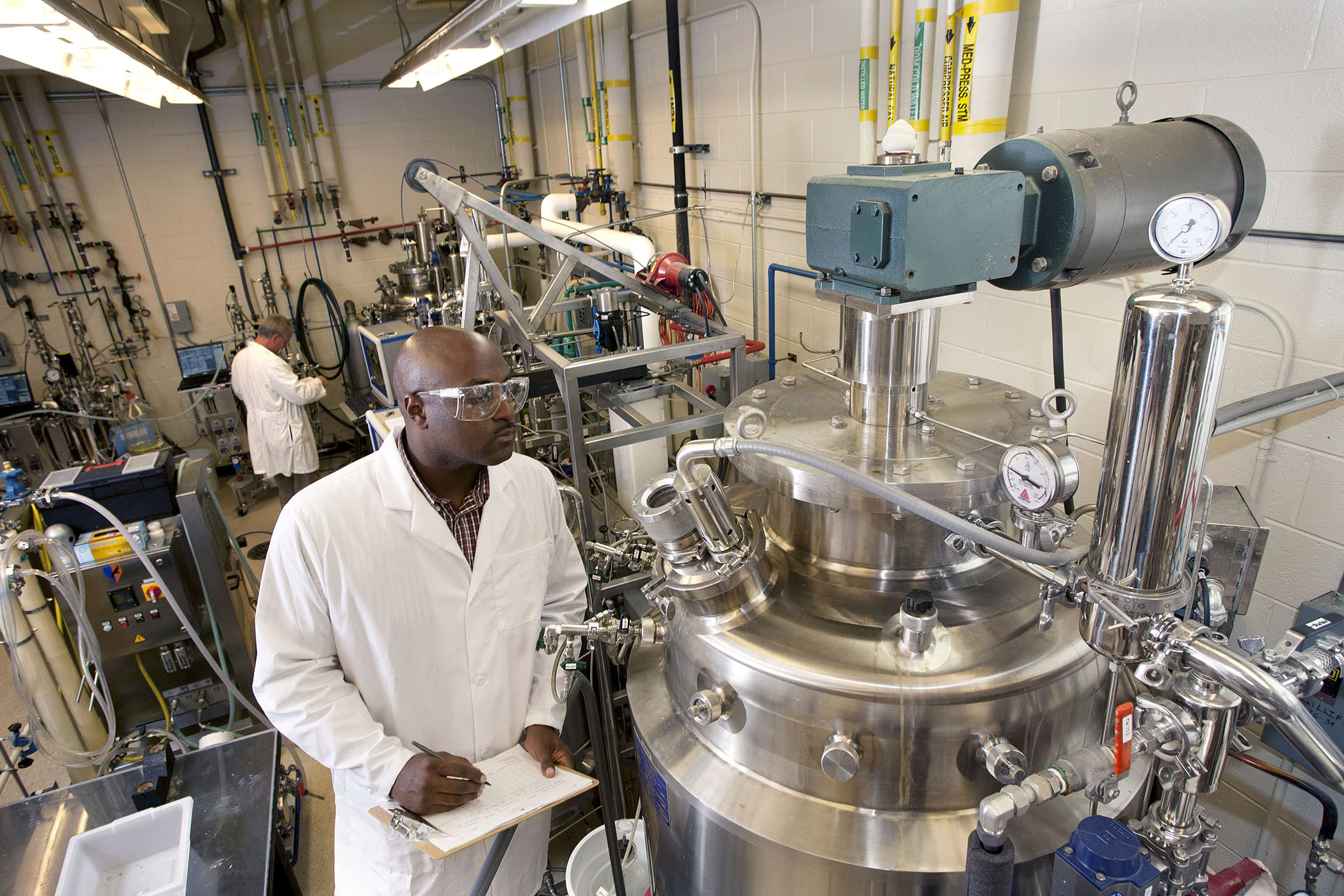Leonard Stewart, Mark Kasilus and Jack Albanese are proof that adding business skills to scientific training equals more than the sum of its parts. The three students, who graduated from UGA’s Master’s in Biomanufacturing and Bioprocessing program, are in high demand.
Stewart has a full-time position with Merial as an Oak Ridge Institute for Science and Education Research Fellow working on veterinary vaccines. Kasilus is now a process development engineer at Meredian Bioplastics, and Albanese is quality control manager at Terrapin Beer Co.
“What’s most impressive about the program is the quality of the students,” said Joy Peterson, an associate professor of microbiology and director and graduate coordinator of the MBB program. “They are getting multiple job offers before finishing their internships, and companies are telling me, ‘Please send me more of these.’ ”
Three more MBB graduates have jobs in industry as a resource efficiency engineer, regulatory affairs associate and quality analyst-all essential roles in industry. And current students are poised to do likewise: seven students already are interning at companies like Novozymes, Merial, Genentech and Swissaustral.
The MBB program, which started with a grant from the National Science Foundation, trains science and technology graduates for leadership roles in the rapidly expanding and vitally important biomanufacturing field by equipping them with the necessary science, technology and engineering skills combined with proven business and project management training.
Faculty for the program come from multiple UGA departments: microbiology, biochemistry and molecular biology, entomology, pharmacy, engineering, forestry and business.
Students choose from two business tracks-the large company track, with an emphasis on enterprise-level issues like market dynamics and performance, and the small-firm track, with an emphasis on new ventures and challenges specific to entrepreneurs, like cash flow management.
The MBB has accumulated a list of industry partners who recognize the value of the UGA pipeline. Many of the industry partners attended the MBB open house in March.
Ralph Tripp, a professor of infectious diseases and Georgia Research Alliance Chair of Animal Health Vaccine Development in the College of Veterinary Medicine, is an MBB faculty member and serves on the program’s curriculum committee. As founder of Argent Diagnostics Inc., and with multiple biopharmaceutical company affiliations, Tripp understands issues related to the transfer of technology from research to commercialization.
He said that the program dispels much of the accepted dogma about “opposing cultures of academia and industry.”


